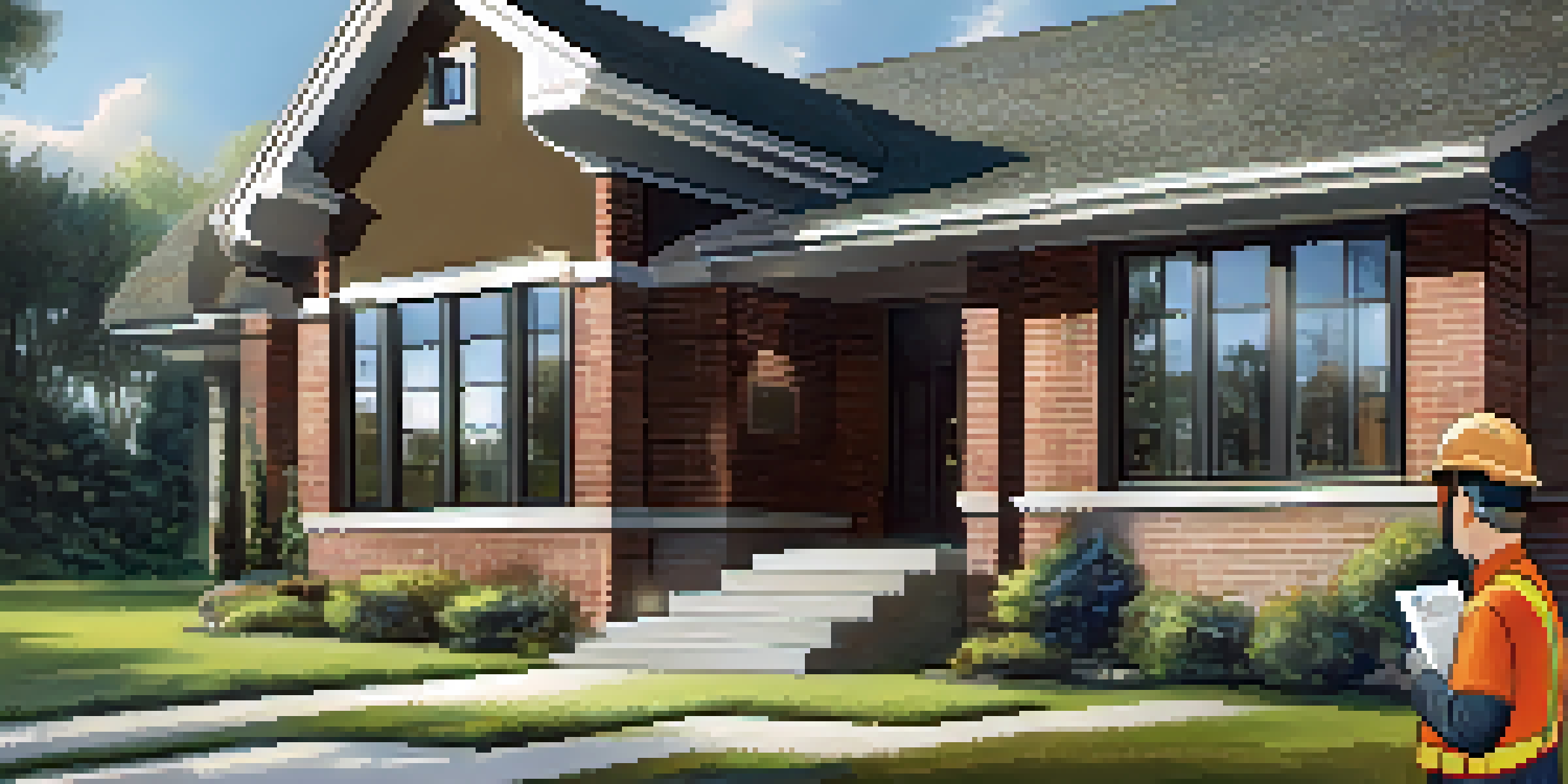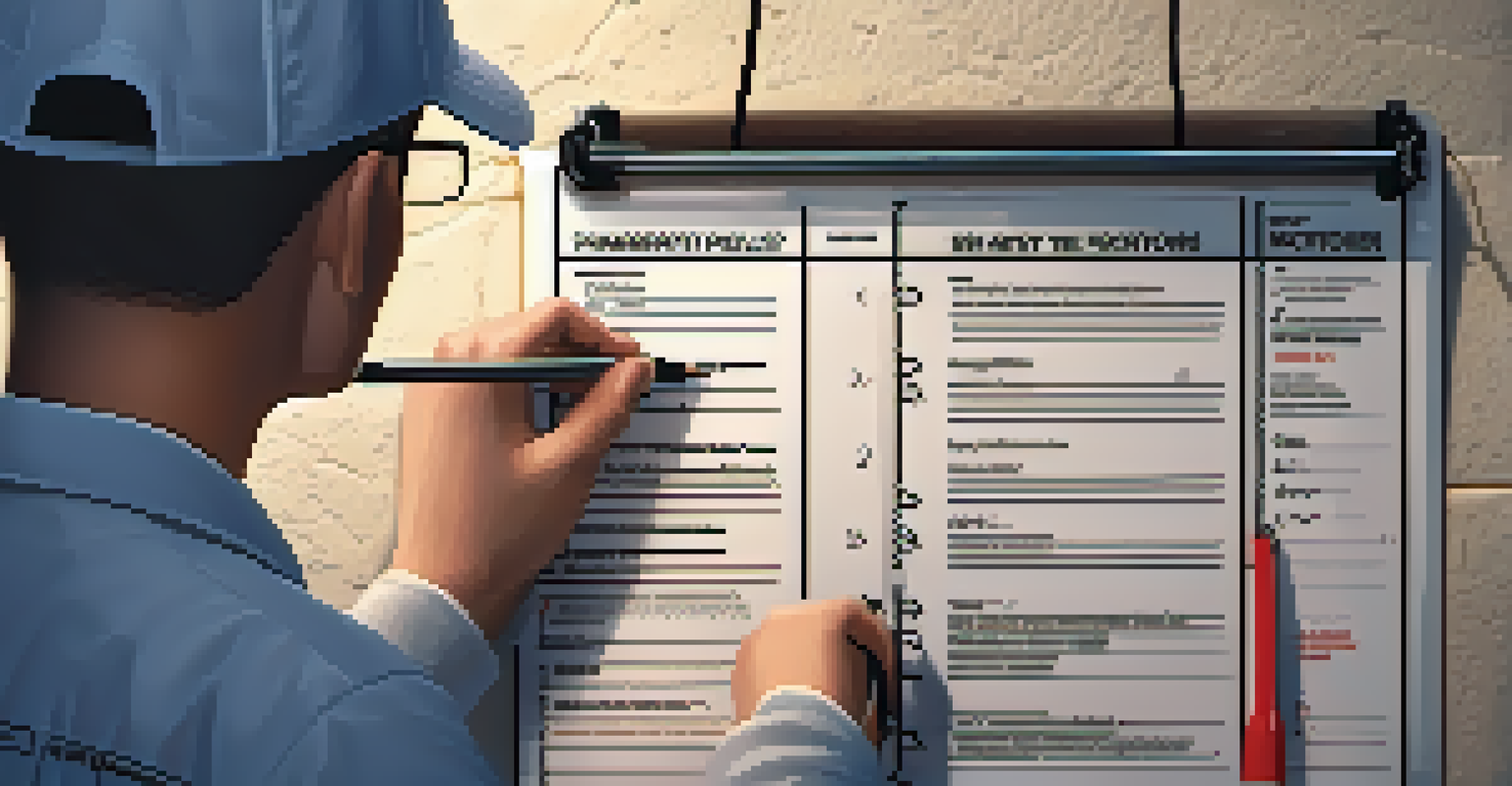Home Inspections: A Legal Requirement for Some Renovations

What Are Home Inspections and Their Purpose?
Home inspections are thorough evaluations of a property's condition, typically conducted by licensed professionals. They serve to identify any existing issues, such as structural damage, electrical problems, or plumbing defects, ensuring that potential buyers or homeowners are aware of what they’re getting into. For renovations, these inspections can uncover hidden problems that may affect the project's scope and safety.
An investment in knowledge always pays the best interest.
The primary purpose of a home inspection is to protect the buyer and ensure that any renovations comply with local building codes and regulations. Think of it as a health check-up for your home; just as you would want to know if there are underlying health issues before undergoing surgery, knowing a home’s condition is crucial before making significant changes. If issues are found, they can often be addressed before they lead to bigger, more expensive problems down the line.
In many cases, home inspections are not just beneficial but legally required, particularly when it comes to renovations that alter the structure or systems of a home. This requirement helps to ensure safety standards are met and that the renovations do not inadvertently compromise the home’s integrity. Ultimately, having a solid understanding of your home's condition can save time, money, and stress in the long run.
When Are Home Inspections Legally Required?
Home inspections may be legally mandated in various scenarios, especially during major renovations. These situations often include projects that involve structural changes, electrical system upgrades, or extensive plumbing work. Local building codes often dictate when an inspection is necessary, so it's essential to check regulations specific to your area before starting any renovations.

For example, if you're planning to remove a load-bearing wall to create an open floor plan, an inspection would likely be required to ensure that the structural integrity of your home is maintained. In many municipalities, permits are issued only after an inspection confirms that the planned changes comply with safety and building regulations. This process helps ensure that all renovations contribute positively to the home’s safety and functionality.
Home Inspections Ensure Safety
Home inspections reveal hidden issues that can affect safety and compliance during renovations.
Additionally, some regions may require inspections for simpler projects if the renovations could affect the home’s systems, like heating or HVAC installations. Understanding these requirements not only keeps you compliant with the law but also shields you from potential fines and future complications that could arise from unpermitted work. Therefore, it's wise to research or consult a professional before diving into your next home project.
The Role of Permits in Home Renovations
Permits are official approvals required by local governments before you can start certain renovations. They ensure that the work complies with building codes and safety standards, protecting both the homeowner and the community. When applying for a permit, a home inspection is often necessary to obtain that approval, which highlights the interconnectedness of these two processes.
The bitterness of poor quality remains long after the sweetness of low price is forgotten.
Think of a permit like a ticket for a concert; without it, you can’t get in, no matter how excited you are about the show. Similarly, without the proper permits and inspections, you may find yourself unable to legally complete your renovation. This not only applies to major renovations but can also extend to smaller projects, depending on local regulations.
Moreover, failure to secure permits can lead to costly fines, and in some cases, the requirement to undo the work completed. This adds to the overall renovation costs and can delay your project significantly. By understanding the importance of permits and inspections, you can streamline your renovation journey and avoid potential roadblocks.
Finding a Qualified Home Inspector
Choosing the right home inspector can make all the difference in your renovation project. Look for inspectors who are certified and have good reviews from previous clients. You might consider asking for referrals from friends or searching online for local professionals who specialize in inspections for renovations.
When interviewing potential inspectors, ask about their experience with similar projects and what their inspection process involves. A qualified inspector should be able to explain their findings clearly and provide insights on any issues that may arise during your renovation. This information is invaluable in helping you make informed decisions about your home improvements.
Permits Are Essential for Renovations
Securing the proper permits, often requiring inspections, is crucial to avoid legal and financial complications.
Additionally, consider the inspector’s communication skills; you want someone who will be approachable and willing to answer your questions. A good rapport can make the inspection process less daunting and more informative. By investing the time to find a qualified inspector, you’ll ensure that your renovation is built on a solid foundation of knowledge and safety.
Common Issues Found During Home Inspections
During a home inspection, several common issues may arise that can impact your renovation plans. These might include outdated electrical systems, plumbing leaks, or even pest infestations that need to be addressed before any work can begin. Each of these issues can pose safety risks and could significantly alter the scope and budget of your renovation project.
For instance, if an inspector uncovers a significant leak in the plumbing, you might need to allocate additional time and funds to fix that issue before proceeding with other renovations. This is where having an inspection early in the renovation process can save you from unexpected surprises down the line. Identifying these issues upfront allows you to plan accordingly and avoid costly delays.
Furthermore, knowing about these potential issues allows you to negotiate repairs with the seller if you’re buying a home or plan your renovations more effectively if you already own the property. The goal is to ensure that your home is safe and sound, providing a solid base for any changes you wish to make. After all, a renovation should be an enhancement, not a solution to deeper problems.
The Benefits of Getting a Home Inspection
While home inspections are often seen as a hurdle, they actually provide numerous benefits that can enhance your renovation experience. First and foremost, they can reveal hidden issues that may not be visible during a casual walkthrough. This proactive approach ensures that you address problems before they escalate into major repairs, potentially saving you a significant amount of time and money.
Additionally, having a professional inspection can provide peace of mind. Knowing that your home is in good condition allows you to focus on the creative aspects of your renovation rather than worrying about underlying issues. This reassurance can make the entire process more enjoyable and less stressful.
Qualified Inspectors Matter
Choosing a qualified home inspector ensures you receive valuable insights that inform your renovation decisions.
Finally, inspections can also increase the overall value of your home. By addressing issues and ensuring that renovations are up to code, you create a home that is safer and more appealing to future buyers. In the long run, investing in a home inspection can lead to a positive return on investment, making it a smart choice for any homeowner considering renovations.
Conclusion: Prioritize Inspections for Successful Renovations
In conclusion, home inspections are a vital component of the renovation process, particularly when legal requirements are involved. They not only ensure compliance with building codes but also protect your investment by uncovering hidden issues that could derail your plans. By prioritizing inspections, you’re setting yourself up for a smoother renovation experience.
Moreover, understanding the inspection process and the reasons behind it can empower you as a homeowner. It allows you to make informed decisions, manage your budget effectively, and ultimately create the home of your dreams without unnecessary setbacks. Remember, a well-informed homeowner is a successful homeowner.

So, as you embark on your next renovation project, keep in mind the importance of home inspections. They are not just a box to check off; they are an essential part of ensuring that your home remains a safe and happy place for you and your family.